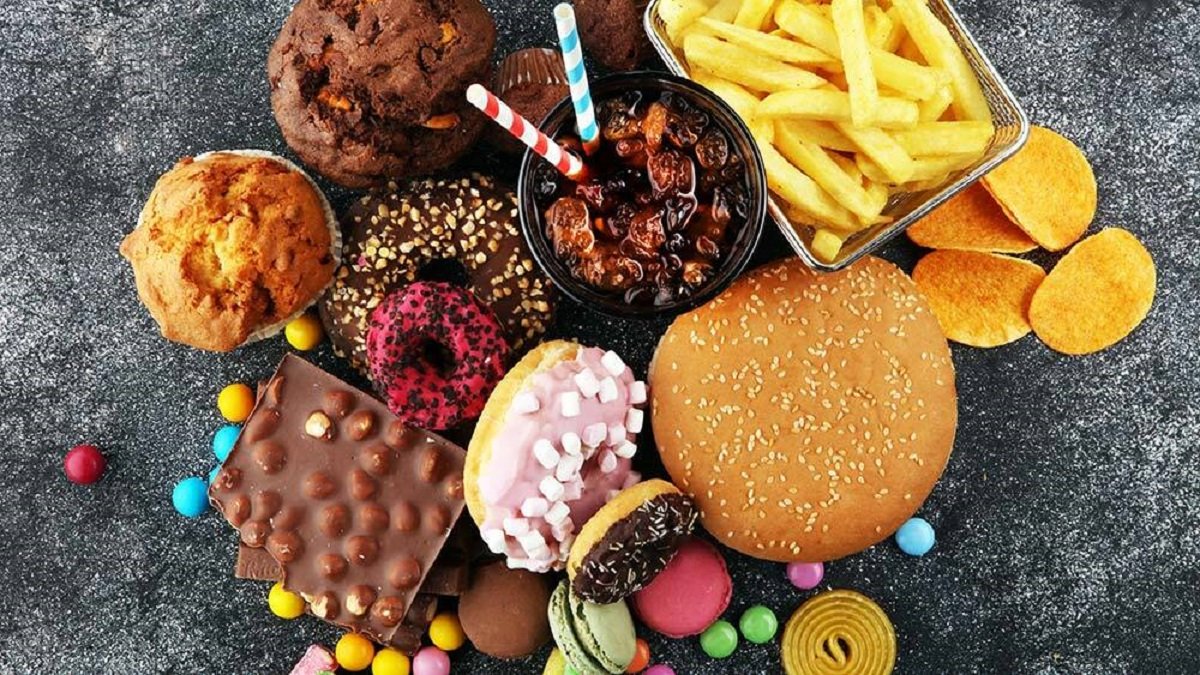It’s 3 p.m., and you’re suffering from that all-too-familiar afternoon slump. It brings on a severe sugar (or salt or caffeine) hunger. You’re not alone yourself. The question of how to stop eating junk food is something that many individuals suffer with often, if not every day. Unbelievably, food producers usually design their products to set off that vicious cycle of addiction in people. They strive for a product’s “bliss point.”
When the salty, sweet, and fatty tastes are just right—not too much, nor too little—the diner is experiencing the ultimate pleasure. Your brain responds to these combinations similarly to cocaine and other drug addictions, and they are tough to avoid. Even while giving in to cravings can feel unavoidable at the time, there are a few easy ways to manage them. Here are some suggestions to get you going.
Tips To Stop Consuming Junk Foods

1. Plan Ahead
There’s no better answer to how to stop eating junk food than to control urges by organizing your meals and snacks ahead of time. If you have a nutritious meal and snacks packed and ready for you at lunchtime and in the afternoon, you’re a lot less likely to grab a leftover piece of pizza, order French fries, or devour the cookies someone brought into the workplace.
In other words, you will lessen your “food cue reactivity.” This is how psychologists describe your vulnerability to being impacted by the food odors, commercials, and discussions around you every day. Try to plan out each week’s meals on Sunday or the day before your workweek begins. Get what you need by going food shopping.
Next, make big quantities of simple dishes like cold salads, stir-fried or roasted vegetables, brown grains, and beans. Pack up serving sizes that you can grab on your way out the door in the morning using foil, mason jars, or food storage containers. Fruits like apples, bananas, and oranges travel well and may be stored on your desk, making them handy afternoon snacks.
2. Consume Regular Meals To Avoid Being Too Hungry
When your hunger becomes intense, your body sends signals to the brain’s reward system, which triggers a strong desire to respond to food cues. This response can make it difficult to resist tempting foods, especially those that are high in sugar, salt, or fat.
It’s important to understand that this is a natural biological reaction designed to help you find and consume food when your body needs energy. However, relying on short-term solutions like fad diets may not be effective in the long run. Instead, it’s crucial to adopt a more sustainable approach by sticking to a regular meal plan that includes balanced portions and nutrient-dense foods.
Focus on eating a variety of fruits, vegetables, whole grains, lean proteins, and healthy fats to keep your body nourished and satisfied. A well-rounded diet can help regulate hunger, prevent overeating, and improve your overall health, making it easier to maintain a healthy weight.
3. Eat Healthy Fats
One of the most common misconceptions about the ways to eliminate junk food is the belief that all fats make you fat. In reality, your body needs fat for proper function, including maintaining cell structure and absorbing essential vitamins.
Heart-healthy fats, like those found in avocados and almonds, not only provide essential nutrients but also help you feel full and satisfied, which can prevent overeating. On the other hand, it’s important to limit your intake of saturated fats, commonly found in red meat and dairy, and avoid trans fats, which are often found in processed foods.
A great way to incorporate healthy fats into your daily meals is by snacking on a handful of mixed nuts or making your own salad dressing with vinegar and olive oil. Moreover, including fatty seafood like salmon or enjoying fresh guacamole can add both flavor and healthy fats to your diet, contributing to overall well-being.
4. Eat Fruits
Fruit is not only a delicious treat but also packed with essential nutrients that provide numerous health benefits. In addition to natural sugars, fruits are rich in water, vitamins, and antioxidants, all of which contribute to maintaining hydration, boosting your immune system, and protecting your cells from oxidative stress.
One of the key advantages of consuming fruit is its fiber content, which helps slow the absorption of sugar into your bloodstream. This gradual release of sugar prevents the sudden spikes and crashes that often result from consuming processed, sugary foods. As a result, eating fruit can help maintain steady energy levels throughout the day.
If you’ve eliminated artificial sweeteners from your diet, you’ll find that fruit tastes even sweeter and more satisfying. For a healthy sweet snack, try reaching for a bowl of antioxidant-rich berries or a refreshing slice of watermelon, both of which provide a natural, nutritious, and fulfilling way to satisfy your cravings.
5. Drink Water And Cut Down Sweetened Beverages
Weight gain can often be linked to the consumption of sugary beverages such as soda, energy drinks, sports drinks, and sweetened teas. These drinks are typically loaded with added sugars, which contribute to a high caloric intake without providing any substantial nutritional value. While the exact mechanism behind weight gain from sugary drinks isn’t fully understood, one possible explanation lies in the way our brain processes liquid calories.
Unlike solid food, the brain may not register the calories in liquid form as effectively. Studies have shown that people who drink sugary beverages like regular cola tend to consume almost the same amount of food as those who drink zero-calorie options like water or diet cola.
This means that they end up taking in extra calories without realizing it, leading to an increased risk of not knowing how to stop eating junk food. Opting for water or unsweetened beverages can help manage calorie intake and promote healthier weight management.
6. Eat A Variety Of Low-Calorie, Nutritious Snacks
If you find yourself getting hungry between meals, consider healthier snack options like vegetable sticks with hummus or a piece of fresh fruit. These snacks are nutrient-dense and provide essential vitamins and fiber, helping you feel full and satisfied without the added calories.
When planning your meals, aim to choose foods you genuinely enjoy but that are lower in calories, fat, salt, and sugar. By making mindful choices and opting for healthier alternatives, you can still indulge in flavors you love without compromising your well-being.
It’s important to listen to your body and ensure that the food you eat throughout the day not only fills your stomach but also satisfies your mind. Eating foods that provide nourishment and pleasure can help prevent cravings for junk food and keep you on track with your health goals. It is one of the best ways to know how to stop eating junk food.
7. Understand And Manage Your Stressors
It’s important to spend time observing the emotional cues that can be one of the ways to eliminate junk food. Stress, anxiety, or boredom can often lead us to reach for high-calorie comfort foods, but learning to recognize these emotional triggers is a key step in managing them.
Instead of giving in to these cravings, consider trying alternative coping strategies like practicing meditation, calling a friend for support, taking a walk, or finding another activity that can help distract and calm your mind. Emotional eating, often triggered by stress, can lead to rapid spikes and drops in blood sugar, which can negatively affect your cardiovascular health, energy levels, and overall well-being.
By planning for these moments and deciding on healthy, satisfying food and drink options, you can make better choices in the face of emotional triggers. Maintaining a well-balanced diet, drinking plenty of water, and managing stress effectively are crucial for keeping our bodies healthy and resilient during difficult times.
8. Have Adequate Sleep
A study found that individuals who were restricted to just four hours of sleep per night for five consecutive days ate more and gained weight. Participants in similar studies also reported feeling hungrier and showing a strong preference for foods high in fat or sugar, often craving unhealthy, high-calorie options. This highlights the crucial link between sleep deprivation and poor dietary choices.
Those who consistently get less than three to four hours of sleep per night face various risks, including an increased likelihood of personal injuries due to drowsiness at work. Sleep-deprived individuals are also more prone to overeating, which can lead to weight gain and even obesity.
In addition, lack of sleep often results in poor performance at work, unhealthy snacking, and reliance on caffeinated drinks, further undermining one’s overall health and diet. Prioritizing sleep is essential for physical and mental well-being.
Things Junk Foods Can Do To Your Body
Junk food, while delicious and convenient, can have a significant negative impact on your body, both in the short and long term. These foods are typically high in unhealthy fats, sugars, salt, and empty calories while lacking essential nutrients. Here’s a closer look at what regular consumption of junk food can do to your body:
Weight Gain and Obesity: Junk foods are often calorie-dense, meaning they provide a large amount of calories without offering much nutritional value. When consumed in excess, they can lead to weight gain and, over time, obesity.
Increased Risk of Heart Disease: Foods high in unhealthy fats, particularly trans fats and saturated fats, can elevate cholesterol levels. This increases the risk of plaque buildup in arteries, which can lead to heart disease, high blood pressure, and stroke.
Blood Sugar Spikes and Diabetes: Junk food, particularly those high in sugar and refined carbohydrates, can cause rapid spikes in blood sugar levels. Over time, these spikes can lead to insulin resistance, increasing the risk of developing type 2 diabetes. High sugar consumption also contributes to weight gain, further exacerbating this risk.
Digestive Issues: Junk food lacks fiber, an essential nutrient for healthy digestion. A diet low in fiber can lead to constipation, bloating, and an increased risk of developing more serious digestive issues like irritable bowel syndrome (IBS).
Mental Health Strain: Studies suggest that consuming a diet high in junk food can negatively affect mental health, contributing to depression, anxiety, and mood swings.
In conclusion, while junk food might satisfy your cravings momentarily, its long-term effects on the body are harmful. Consuming a balanced diet with whole foods rich in nutrients is essential, and knowing how to stop eating junk food is important for maintaining overall health and well-being.
FAQ
Q: How can I start reducing my junk food intake?
A: To reduce junk food consumption, start by gradually replacing unhealthy snacks with healthier alternatives, such as fruits, nuts, or yogurt. Plan your meals and snacks ahead of time to avoid impulsive eating. Staying hydrated and practicing mindful eating can also help curb cravings.
Q: How can I deal with cravings for junk food?
A: Cravings can be managed by identifying emotional triggers, such as stress or boredom. When cravings hit, try distracting yourself with an activity like taking a walk, meditating, or calling a friend. Additionally, drinking water or having a small healthy snack can help reduce the intensity of the cravings.
Q: What are some healthier snack options instead of junk food?
A: Opt for snacks like vegetable sticks with hummus, a piece of fresh fruit, whole-grain crackers with cheese, or a handful of mixed nuts. These provide essential nutrients and keep you feeling full without the excessive sugar and fat found in junk food.











